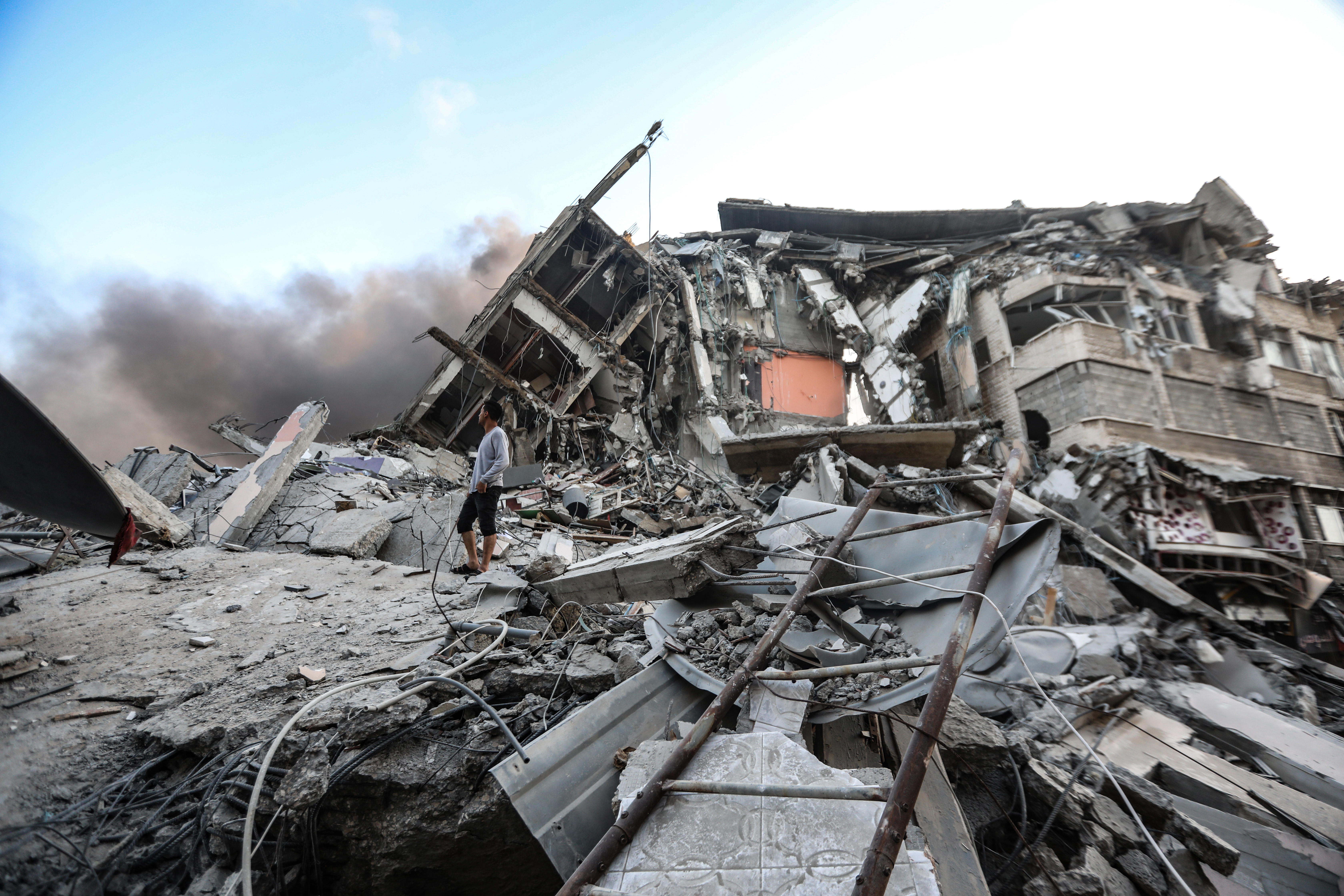A day in the life of a UNDP staff member in Gaza
“I want my old normal life back” my son said.
May 20, 2021
Walking amidst the rubble following the May 2021 hostilities on Gaza. ©UNDP / PAPP - Mohammed Zaanoon
In a moment of tranquillity, and while preparing the one and only meal I can prepare on a daily basis for my family, my son and I were in the kitchen when he grabbed my hand and said “Mom, I like my old normal life and I want it back.” I answered, “It will be back soon.” My answer was doubtful, especially after nights I would describe as nights of horror.
Eleven days ago, we had a life we could call normal. A life under COVID-19 precautionary measures and highest rates of positive cases in the region. A life under restricted access to movement in and out the Strip. A life with almost 60% of youth unemployed and 80% of the population aid-dependent. But it was still normal for us, at least. Until another round of hostilities started.
As a human being, I was scared, and as a mother of two children, aged ten and six, I had to act differently. As my children were shaking while hugging me during air raids, my heart was trembling too, but my hands were steady - holding them and praying.
Monday dawn, at around 1:30, the most violent and terrifying air raids started. Around 50 bombs dropped around where I live. The children woke up in shock. I hugged them and thought to myself: forgive me for having you in Gaza. The air raids were getting closer. We decided then to move from the corridor into the kitchen. The raids got more intense. Suddenly, the building started to shake; my heart shook as well. We could hear the sound of windows shattering and cement collapsing then some sandy wind entered the house. I looked at my husband terrified and then decided in a moment to carry our emergency bag and evacuate. I said, “what if they were bombing the street?” We should stay here. We have no options. The bombing got closer and the house started shaking again. The four of us hugged each other and prayed until it was over. The next day, we woke up asking each other: are we alive?
Shahd's daughter covering her ears while sleeping so that she does not hear the bombings in Gaza
Monday noon, the doorbell rings, someone says: the building in the next street will be bombed. Children heard it. Running towards me, putting their slippers on, and taking the stairs down reaching a safer place than my apartment. One missile, two, three and then the fourth along with a huge explosion. The building was down and so were our souls, the dreams and businesses of others residents are all over. “Is it over?” my daughter said. I answered again “ yes” doubtfully. We went back to our apartment, hands shaking, and I prepared the one meal we ate a day.
As a mother, I do not have a space to cry in. I was following the news and I saw photos of children killed, I read the stories, sensed the faces, experienced the pain and the agony. I wanted to cry but my children were looking at me. “Where are you going mum?” my son asked. “To the bathroom” I answered. And there, I collapsed. I cried like a baby, as a mother, as a Palestinian who lived in Gaza for 31 years, witnessed two Intifadas, three wars, tens of escalations and loss of loved ones and places.
A ceasefire was announced tonight. We will go back to sleeping in our rooms instead of the corridor. My daughter is still covering her ears with her hands believing she will not hear bombs and I still hide my tears because it is not the time to collapse. As we plan to leave our home for the first time in 12 days, my children and I have already prepared a list of things we will do once it is over, including wearing Eid Al Fitr clothes that happened to be the third day of the escalation, visiting Al Remal area to eat in a restaurant that my children still do not know it was damaged, going to the sea where the main street was bombed, and visit some recreational sites that were targeted as well. I tell them yes we will do what is on the list - maybe soon or not. Some wishes are seem to be impossible these days, but better to dream than to cry.
Shahd works as a Communications Associate at UNDP office in Gaza.

 Locations
Locations





